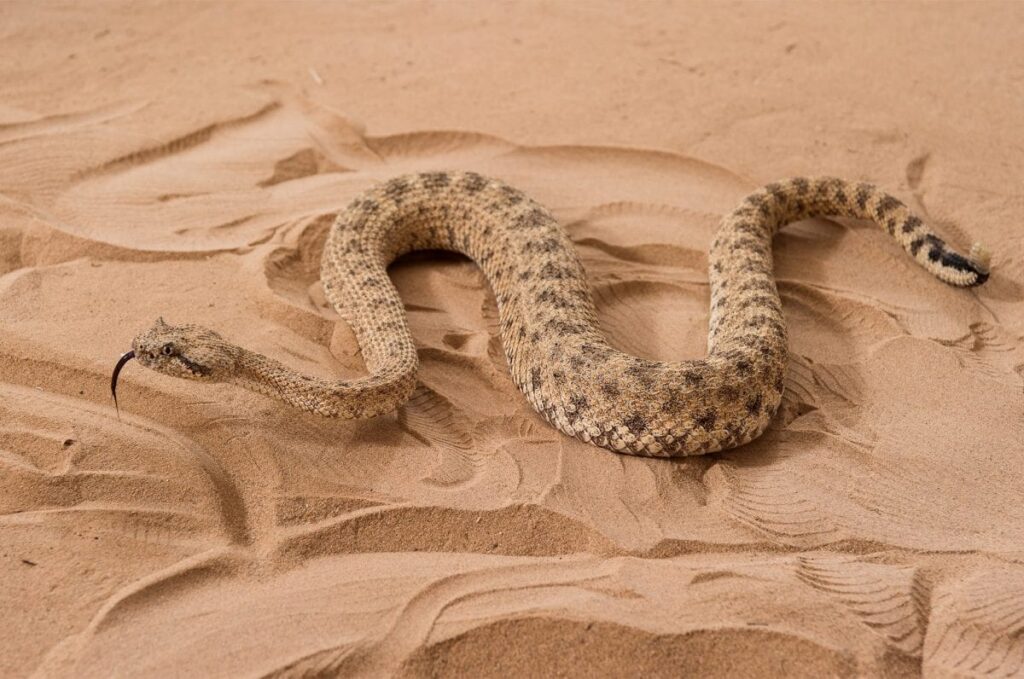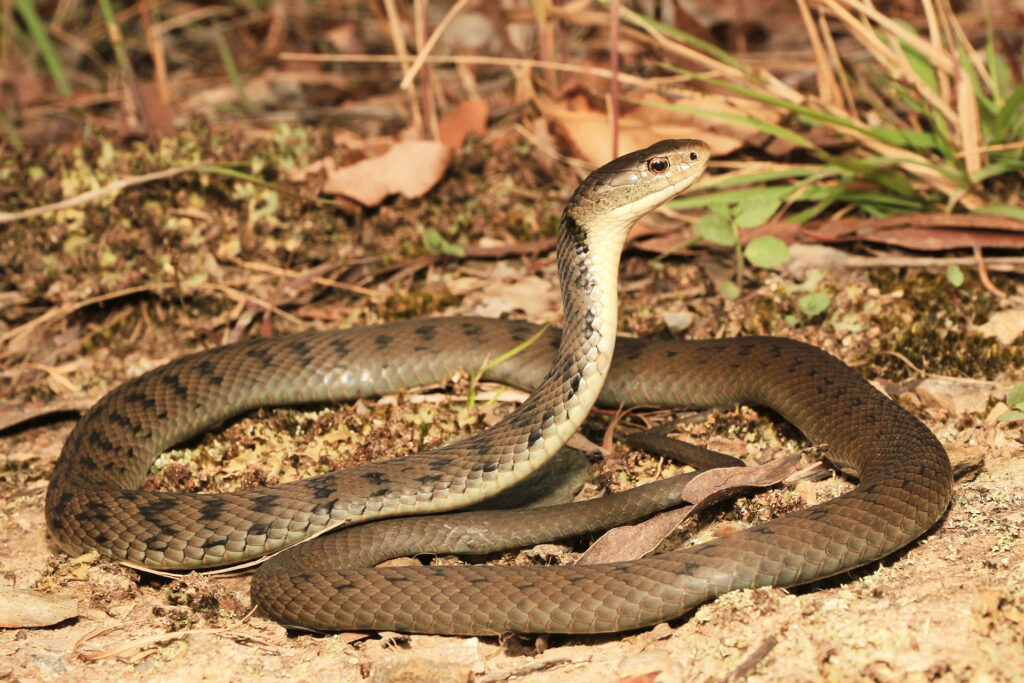Table of Contents
ToggleIntroduction
The mesmerizing landscapes of Southern Mississippi, where nature’s tapestry unfolds in all its diversity. Snakes In Southern Mississippi? Among the array of wildlife that calls this region home, snakes slither into focus. Showcasing a fascinating and often misunderstood aspect of the local ecosystem. From the bayous and wetlands to the pine forests, Southern Mississippi provides a habitat for a variety of snake species. Each with its unique characteristics and role in the delicate balance of nature. Join us on a journey into the realm of snakes in Southern Mississippi, where these serpentine inhabitants play a vital role in the rich biodiversity that graces this captivating part of the American South.
Snake Species In Southern Mississippi: Guardians Of Biodiversity
Identification of Common Snake Species
Southern Mississippi boasts a diverse array of snake species, each contributing to the rich tapestry of the region’s wildlife. Among the common snake inhabitants is the Eastern Diamondback Rattlesnake, known for its distinctive rattling warning. The elegant Rat Snake with its slender form, and the Copperhead, adorned with its characteristic copper-colored head. Additionally, the vibrant Scarlet Snake and the secretive Eastern Coral Snake add to the variety. Creating a mosaic of winding life in Southern Mississippi.
Overview of Their Habitats and Distribution
These snake species have adapted to a variety of habitats, each carving out its niche within the Southern Mississippi landscape. The Eastern Diamondback Rattlesnake may be found in the longleaf pine forests, utilizing the sandy soil for burrowing. Rat Snakes thrive in diverse environments, from wooded areas to farmlands, while Copperheads may be encountered in the wooded regions near water sources. The Scarlet Snake, with its preference for loose soils, is often spotted in sandy areas, while the Eastern Coral Snake tends to inhabit the pine forests and mixed woodlands. Understanding the habitats and distributions of these species is key to appreciating their roles within the ecosystem.
Unique Adaptations and Roles in the Local Ecosystem
Each snake species in Southern Mississippi exhibits unique adaptations that contribute to their survival and ecological roles. The Eastern Diamondback Rattlesnake’s rattling serves as both a warning to potential threats and a means of communication. Rat Snakes, with their climbing abilities, play a vital role in controlling rodent populations, acting as natural pest controllers. Copperheads, while evil, help control small mammal populations, contributing to the balance of the local ecosystem. Scarlet Snakes, with their mimicry of venomous species, navigate their sandy habitats with ease. Eastern Coral Snakes, with their vibrant colors, serve as a reminder of the delicate harmony within the pine forests.
Interactions With Humans: Nurturing Understanding And Coexistence With Southern Mississippi Snakes
Common Misconceptions and Myths About Snakes
Snakes have long been surrounded by myths and misconceptions, often leading to fear and misunderstandings. In Southern Mississippi, as in many regions, these misconceptions range from associating all snakes with danger to perpetuating harmful stereotypes about certain species. Common myths include the belief that all snakes are venomous or aggressive, fostering an unwarranted fear that contributes to negative human-snake interactions. Dispelling these myths is crucial for fostering a more informed and respectful approach to these essential members of the local ecosystem.
Importance of Snake Conservation and Coexistence
Recognizing the vital role snakes play in maintaining the balance of Southern Mississippi’s ecosystems is fundamental to their conservation and coexistence with humans. Snakes contribute significantly to rodent control, helping to manage agricultural pests and prevent the spread of diseases. Understanding and appreciating their ecological roles can foster a sense of stewardship, emphasizing the importance of conserving these creatures rather than viewing them solely as threats. Encouraging coexistence involves creating habitats that support snakes without compromising human safety, emphasizing the mutual benefit of a harmonious relationship.
Educational Initiatives for Understanding and Appreciating Snakes
Education serves as a powerful tool in reshaping perceptions and promoting coexistence with snakes. Initiatives aimed at increasing public awareness about snake species, their behavior, and their ecological significance are essential. Educational programs can range from community workshops and nature walks to informative campaigns that debunk common myths. These initiatives not only provide valuable knowledge about snakes but also instill a sense of appreciation for the intricate role they play in maintaining the health and biodiversity of Southern Mississippi’s natural landscapes.
Environmental Impact: Snakes As Stewards Of Southern Mississippi’s Ecosystems

Role of Snakes in Controlling Rodent Populations
Snakes in Southern Mississippi play a crucial role as natural pest controllers by actively controlling rodent populations. Rodents, which can increase rapidly and pose threats to crops and human habitation, are kept in check by snake predation. Species like the Rat Snake, known for their adept hunting skills, help maintain a balance in rodent numbers, contributing to the overall health of agricultural lands and preventing the disease transmission by these tiny creatures.
Contribution to the Balance of the Local Food Chain
Snakes occupy a pivotal position in the intricate web of the local food chain in Southern Mississippi. As predators, they regulate the populations of smaller animals, preventing overgrazing and maintaining biodiversity. By controlling the numbers of rodents, amphibians, and other small prey, snakes indirectly impact the abundance of their predators, creating a balanced and sustainable ecosystem. Their presence and role as mid-level predators contribute to the overall stability and health of Southern Mississippi’s natural landscapes.
Environmental Indicators and Their Significance in Southern Mississippi
Snakes serve as valuable environmental indicators, reflecting the health and balance of their ecosystems. Their population dynamics and behaviors are influenced by environmental conditions, making them sensitive barometers of ecological changes. Monitoring snake populations and behaviors can provide insights into the overall well-being of Southern Mississippi’s habitats, including the effects of habitat loss, pollution, or climate change. As indicators, snakes offer valuable cues for conservation efforts, prompting action when shifts in their populations suggest potential environmental imbalances.
Conclusion
The story of snakes in Southern Mississippi weaves a tale of biodiversity, adaptation, and the intricate dance of predator and prey in this vibrant region. From the elusive Eastern Diamondback Rattlesnake to the graceful Rat Snake, these serpentine inhabitants contribute to the delicate balance of ecosystems found in the bayous, wetlands, and pine forests of Southern Mississippi. As we conclude our exploration, it becomes evident that these often misunderstood creatures play a crucial role in maintaining the health and equilibrium of the region’s natural landscapes. The presence of snakes in Southern Mississippi reflects the resilient beauty of nature and the coexistence of diverse species within this dynamic environment.







